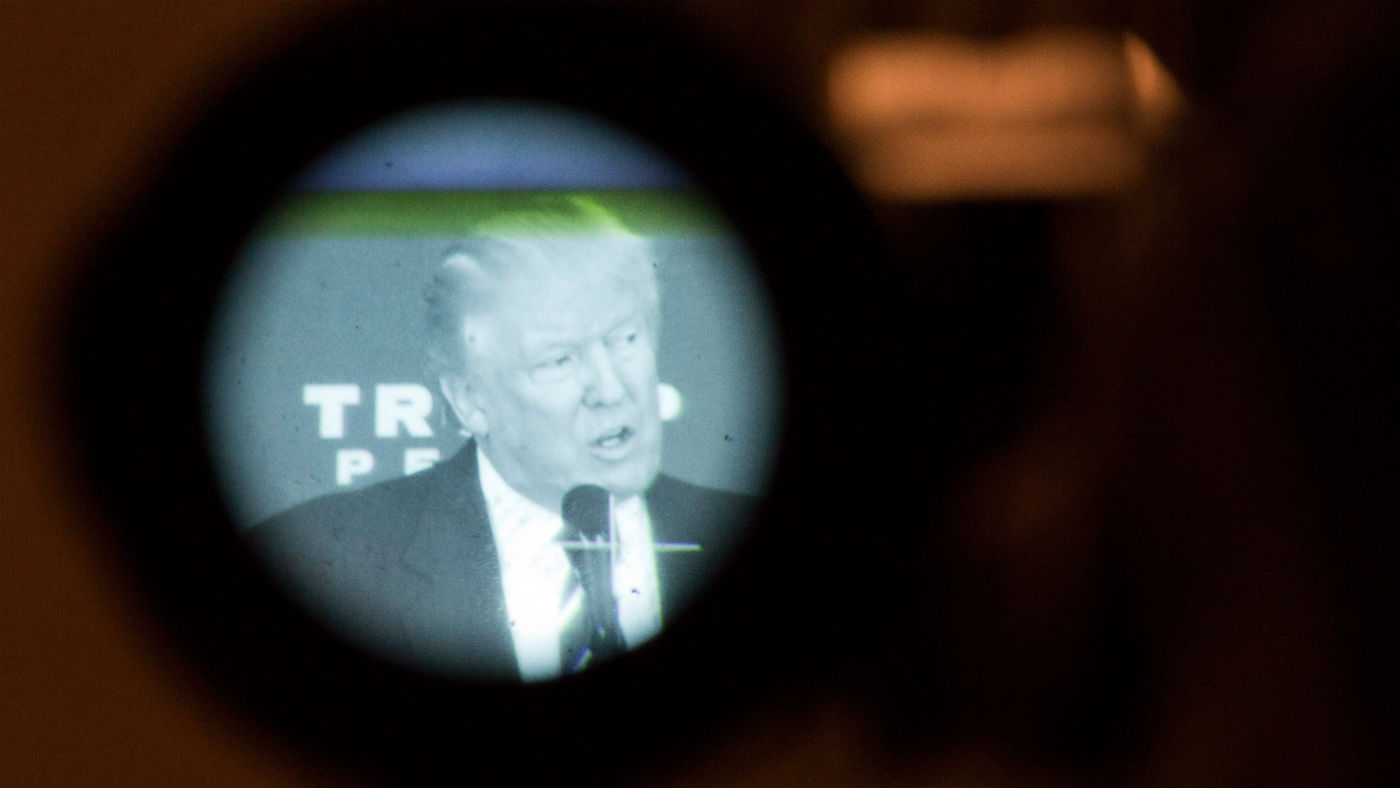Donald Trump sets his sights on tougher libel laws
The US President calls for laws to be changed in the wake of a critical behind-the-scenes book

A free daily email with the biggest news stories of the day – and the best features from TheWeek.com
You are now subscribed
Your newsletter sign-up was successful
Donald Trump has said he wants to strengthen libel laws, after a controversial book detailed the inner workings of his White House.
As the fallout continued from Michael Wolff’s book Fire and Fury: Inside the Trump White House, the US President hit out at the US’s “very weak” libel laws and said he would like to toughen them.
If libel laws were stronger, he said, “you wouldn’t have things like that happen where you can say whatever comes into your head”.
The Week
Escape your echo chamber. Get the facts behind the news, plus analysis from multiple perspectives.

Sign up for The Week's Free Newsletters
From our morning news briefing to a weekly Good News Newsletter, get the best of The Week delivered directly to your inbox.
From our morning news briefing to a weekly Good News Newsletter, get the best of The Week delivered directly to your inbox.
This is not the first time Trump has attacked US libel laws and press freedom. During the 2016 presidential campaign he said: “I’m going to open up our libel laws so when they write purposely negative and horrible and false articles, we can sue them and win lots of money.” At the time, CNN says this marked “a dramatic escalation from Trump’s typical anti-media rhetoric” which incensed many journalists.
In October of that year, just weeks before the election, Trump said America's press protections went too far and should more closely resemble British law.
In March 2017, he again hit out at The New York Times, saying he was unhappy with its reporting of his campaign and administration.
So can the President change the libel laws?
A free daily email with the biggest news stories of the day – and the best features from TheWeek.com
There is no single federal law on libel - instead, it varies from state to state. Since the US Supreme Court’s 1964 New York Times v Sullivan ruling, however, constitutional limits have been placed on how states can define libel, notably by requiring public officials and public figures to prove malice.
This means the plaintiff has to show that the writer knew the disputed statement was false or acted with “reckless disregard”. This differs from British law, where the burden of proof is on the defendant to show that the statements they made were true, not libellous. The US law makes it harder for public figures to win libel suits.
Changing this would require either the Supreme Court to overrule it or a constitutional amendment, “neither of which is remotely likely”, says The New York Times, “though Trump could try to appoint Supreme Court justices who would vote to overturn the precedent”.
Even then, it could prove difficult, says CNN, “as there is no single law that could be changed, other than the First Amendment and the protections it gives”.
In February last year, First Lady Melania Trump settled a defamation lawsuit against a Maryland blogger who made lurid claims about her past. She also sued the parent company of the Daily Mail, which later retracted its story.